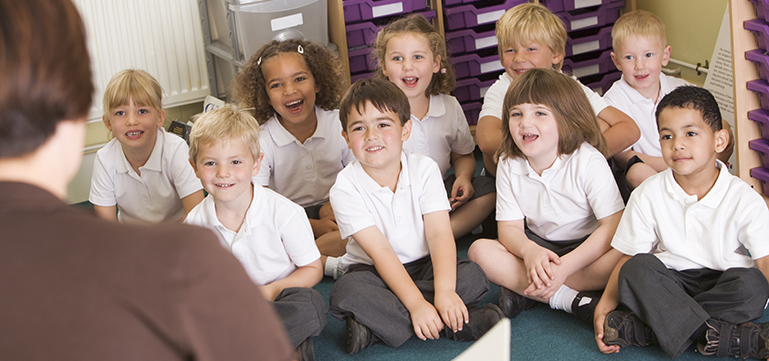Reviewing approaches in meeting the needs of more able and talented pupils in response to curriculum reform in Wales

Quick links:
Information about the school
Langstone Primary School is in the village of Langstone to the east of Newport. The school serves the local and surrounding area. There are around 300 full-time pupils on roll from the ages of four to eleven.
Just over 2% of pupils are eligible for free school meals. This is considerably below both local and national averages. The school has identified about 11% of pupils as having additional learning needs.
Context and background to the effective practice
The school has a very strong track record of high performance of more able pupils. Langstone Primary is a professional learning pioneer school.
In response to curriculum reform in Wales, the school has reviewed its approach to how it meets the needs of more able and talented pupils. Instead of talking about ‘how to teach more able pupils’, staff have focused on developing a pedagogy that works for all children driven by the four ‘core purposes’. For this reason, the school has moved away from identifying more able and talented pupils as a distinct group and keeping a formal register. The school now considers its provision for more able and talented pupils to be part of its inclusive philosophy of having high expectations of all pupils and providing the appropriate support and challenge to meet every pupil’s needs.
Description of activity/strategy
The school uses a combination of class topics and a whole-school project approach to deliver its curriculum. It provides pupils with a careful balance of breadth of opportunity and time to study aspects of topics in depth to develop, consolidate and embed their knowledge and skills progressively across the school. For example, the ‘Pages through the ages’ project ensures that all pupils, including the more able and talented, receive many stimulating opportunities to apply their literacy and numeracy skills successfully in a wide range of contexts and to develop their subject‑specific knowledge and skills effectively across areas of learning and experience underpinned by the four core purposes.
The school places significant emphasis on developing pupils’ skills for learning. It embeds strategies that have proven to be effective over time. For example, from the reception class to Year 6, pupils use a common set of ‘tools’ to help them plan their thinking and scaffold their learning independently. This means that, from a very young age, pupils make choices over how to present their work. This approach has been embedded over many years and this has had a strong and sustained impact on developing more able pupils’ planning, recording and decision‑making skills.
The school uses a film throughout the year, as the context for its whole‑school focus on developing pupils’ lifelong learning skills. Leaders had identified that pupils do not always have the resilience to cope when they find something difficult or get something wrong in their work. They chose the film ‘Eddie the Eagle’ as the vehicle for planning curriculum work to introduce more able and talented pupils to the concept of the ‘power of yet’. They arranged for Eddie ‘the Eagle’ Edwards to visit the school to talk to pupils about his challenges in reaching and participating in the Olympic games, and the importance of self-belief. This inspiring real-life experience has had a powerful impact on helping more able pupils and those with sporting or creative talents to develop better resilience and to persevere in their learning.
Impact on provision and standards
In the school’s last inspection in 2014, Estyn identified that:
- there is a consistent record over time of high performance of more able pupils
- teaching of very good quality ensures that nearly all pupils receive a high level of challenge in their work
- teachers develop pupils’ skills for learning exceptionally well
More able and talented pupils talk confidently about there being a ‘sticking point’ when tackling more challenging concepts or skills, or applying their knowledge and skills in a new situation. They explain confidently the strategies they use to overcome this to strive towards their learning goals. They demonstrate resilience and a high degree of independence as learners.